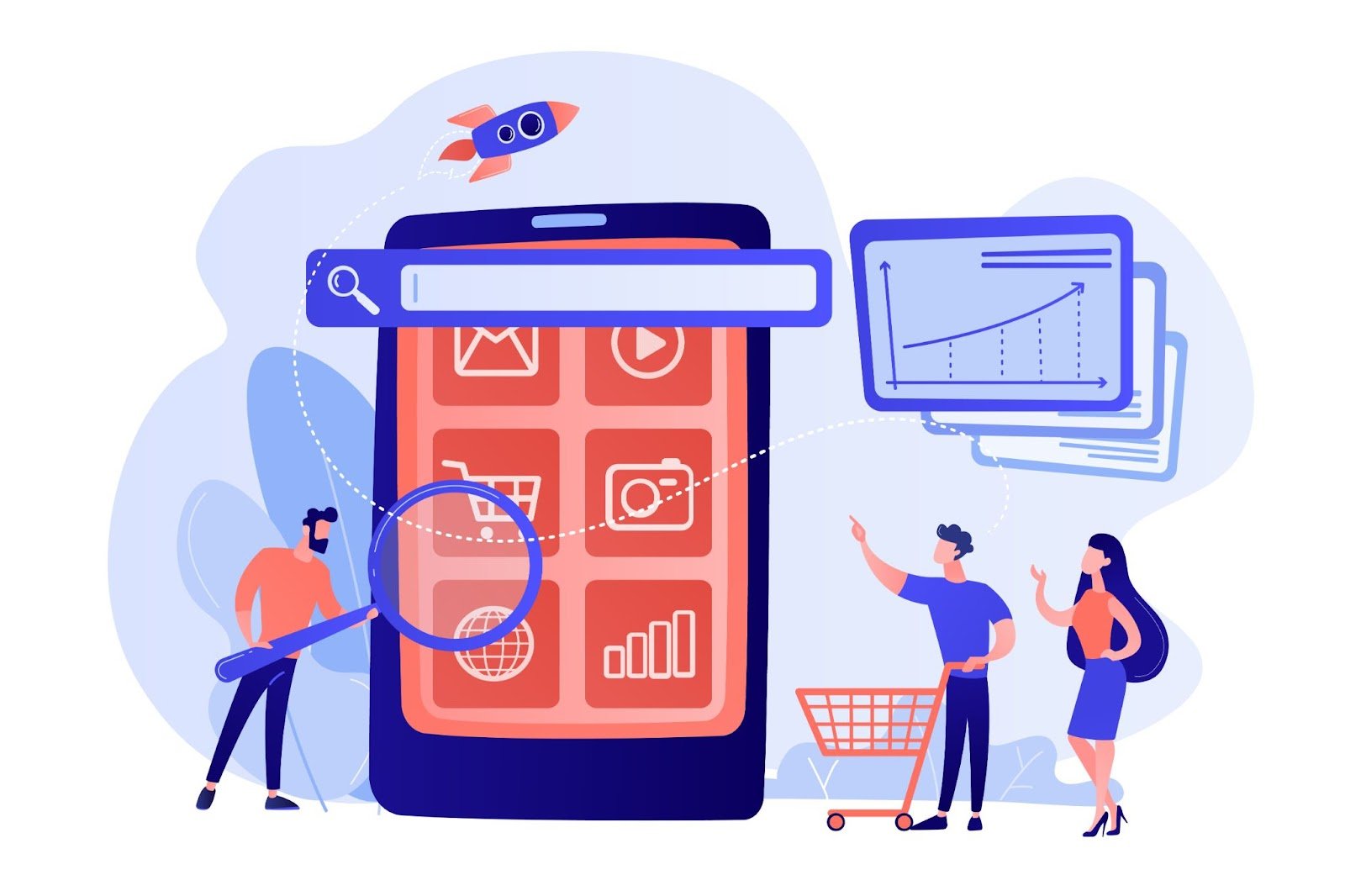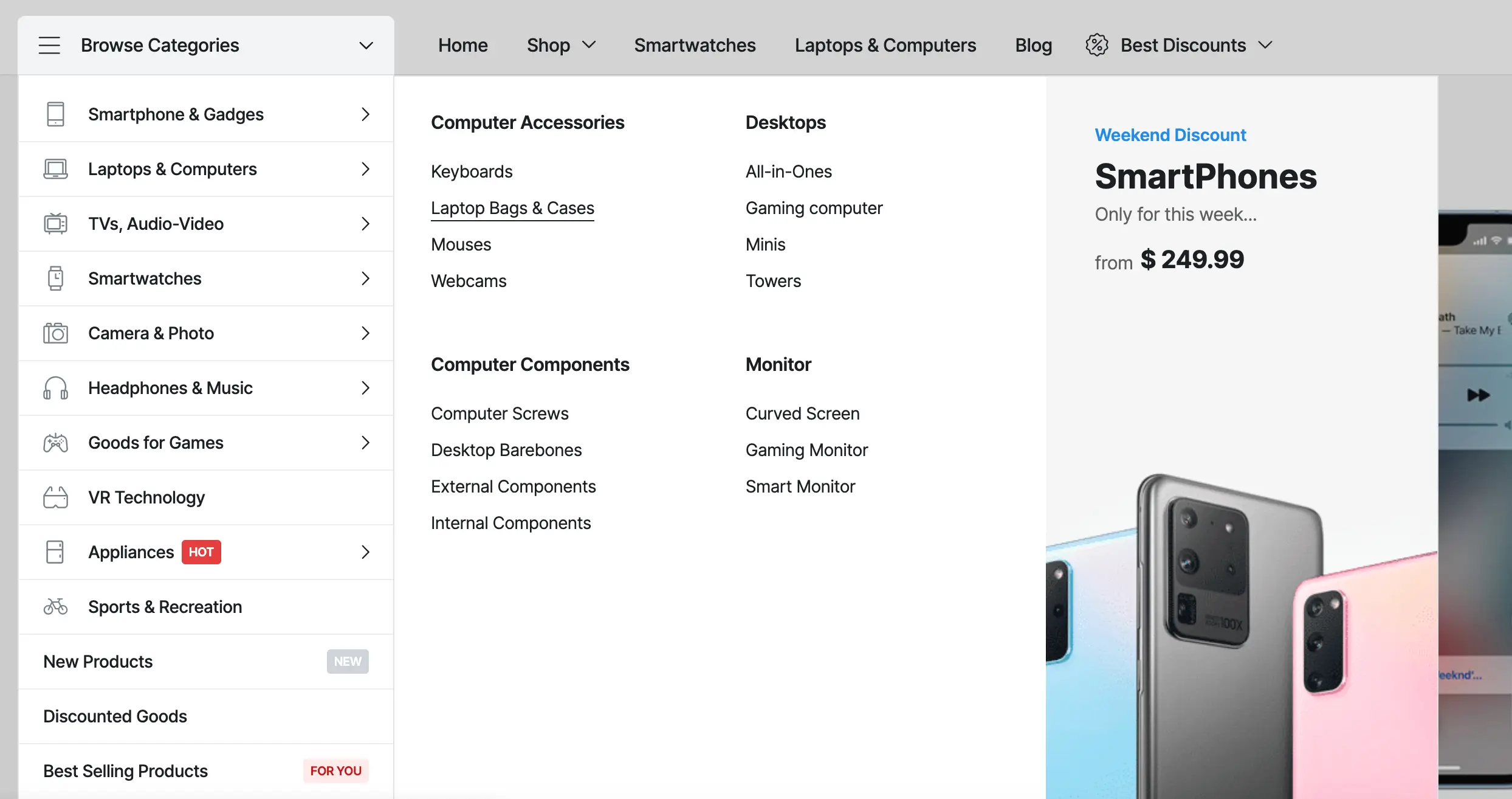How Does Multichannel Ecommerce Impact Your Brand, Sales, and Growth?
In the dynamic realm of ecommerce, the strategic deployment of multichannel selling has become a linchpin for businesses aiming to expand their horizons, bolster sales figures, and ignite sustainable growth. Embracing this approach not only amplifies brand visibility but also opens avenues for engaging with customers across diverse online platforms. However, to navigate the complexities and harness the full potential of multichannel ecommerce, partnering with seasoned WooCommerce developers is paramount. These experts possess the prowess to tailor your ecommerce ecosystem, leveraging the power of WooCommerce, to seamlessly integrate with multiple channels and maximize your brand’s impact. Let’s embark on a journey to unravel the multifaceted influence of multichannel ecommerce on your brand, sales, and growth, with a spotlight on the indispensable role of hiring a WooCommerce developer in this transformative process.
Impact on Brand:
In the fiercely competitive world of ecommerce, establishing a strong brand presence is crucial for success. Multichannel ecommerce significantly impacts brand visibility, credibility, and customer engagement, ultimately shaping consumer perceptions and driving brand loyalty.
Increased Visibility:
Expanding your brand’s presence across multiple channels makes your products visible to a broader audience. Instead of relying solely on your website, you can leverage various platforms such as social media, online marketplaces, and third-party retailers. This increased visibility ensures that your brand and products are discoverable by a wider demographic, including potential customers who may not have found you otherwise. By casting a wider net, you enhance the likelihood of attracting new customers and driving sales.
Enhanced Credibility:
Being present on reputable ecommerce platforms carries significant weight in the eyes of consumers. When customers encounter your products on well-established platforms known for reliability and quality, it automatically lends credibility to your brand. Associating with reputable platforms signals to consumers that your brand meets certain standards of excellence and professionalism. As a result, customers are more likely to trust your brand, leading to increased confidence in making purchases. This heightened credibility not only attracts new customers but also reinforces loyalty among existing ones.
Improved Customer Engagement:
Multichannel presence enables direct interaction with customers across various touchpoints, fostering personalized engagement and building stronger relationships. Through social media, email, live chat, and customer support portals, brands can engage with customers in real time, addressing inquiries, providing assistance, and soliciting feedback. This direct engagement creates a more personalized and interactive shopping experience, enhancing customer satisfaction and fostering brand loyalty. By actively engaging with customers and cultivating meaningful relationships, brands can differentiate themselves from competitors and create a loyal customer base that advocates for their brand.
In summary, multichannel ecommerce significantly impacts brand visibility, credibility, and customer engagement. By expanding your presence across multiple channels, you increase visibility, enhance credibility, and foster deeper connections with customers, ultimately driving brand success in today’s competitive ecommerce landscape.

Impact on Sales:
In the dynamic landscape of ecommerce, driving sales is the ultimate goal for businesses. Multichannel ecommerce offers several advantages that significantly impact sales performance, including expanded reach, optimized conversion funnels, and reduced dependency on individual platforms.
Expanded Reach:
One of the most compelling advantages of multichannel ecommerce is its ability to expand your brand’s reach to diverse customer segments across different platforms. By leveraging multiple channels such as your own website, social media platforms, online marketplaces, and brick-and-mortar stores, you can reach customers wherever they prefer to shop. This broader reach exposes your products to a larger audience, including potential customers who may not have discovered your brand otherwise. As a result, you increase sales opportunities and tap into new markets, driving revenue growth.
Optimized Conversion Funnel:
Each sales channel offers unique features and functionalities that cater to different stages of the buyer’s journey. From initial discovery to post-purchase support, multichannel ecommerce enables you to optimize the conversion funnel at every touchpoint. For instance, social media channels may be effective for generating awareness and engagement, while your website or marketplace listings are ideal for facilitating product research and making purchases. By strategically leveraging the strengths of each channel, you can streamline the customer journey, remove barriers to purchase, and ultimately drive more sales. Additionally, data-driven insights obtained from analyzing customer behavior across channels allow you to refine your marketing strategies and tailor your offerings to meet specific customer needs, further optimizing the conversion process.
Reduced Dependency:
Relying solely on a single sales channel poses inherent risks, such as fluctuations in traffic, changes in algorithms, or disruptions in service. Multichannel ecommerce mitigates these risks by diversifying your sales channels, reducing dependency on any one platform. By spreading sales across multiple channels, you ensure consistent revenue streams and safeguard against potential disruptions. Moreover, diversification minimizes the impact of external factors on your business, providing greater stability and resilience in the face of uncertainty.
In summary, multichannel ecommerce significantly impacts sales performance by expanding reach, optimizing conversion funnels, and reducing dependency on individual platforms. By leveraging multiple channels effectively, businesses can maximize sales opportunities, enhance customer engagement, and achieve sustainable growth in today’s competitive ecommerce landscape.

Impact on Growth:
In the fast-paced world of ecommerce, achieving sustainable growth is paramount for businesses looking to thrive in competitive markets. Multichannel ecommerce presents several opportunities that can profoundly impact a company’s growth trajectory, including scalability, data-driven insights, and gaining a competitive edge.
Scalability:
One of the key advantages of multichannel ecommerce is its ability to provide scalability without the need for significant infrastructure investments. By diversifying sales channels across various platforms such as your own website, social media, marketplaces, and brick-and-mortar stores, you open up avenues for expansion into new markets and customer segments. This diversification allows your business to grow seamlessly, accommodating increased demand and adapting to changing market dynamics. Additionally, multichannel ecommerce offers flexibility in scaling operations, enabling you to adjust inventory levels, expand product offerings, and optimize fulfillment processes to meet evolving customer needs.
Data-Driven Insights:
Multichannel ecommerce generates a wealth of valuable data about customer behavior, preferences, and market trends across different channels. By leveraging advanced analytics tools and techniques, businesses can derive actionable insights from this data to inform strategic decisions and drive continuous growth. Analyzing customer interactions, purchase patterns, and demographic information enables businesses to identify emerging trends, pinpoint areas for improvement, and personalize marketing efforts to better resonate with target audiences. Moreover, data-driven insights empower businesses to optimize product assortments, pricing strategies, and promotional campaigns, ultimately enhancing customer satisfaction and driving revenue growth.
Competitive Edge:
Embracing multichannel ecommerce gives your brand a significant competitive edge in the marketplace. By diversifying your presence across multiple channels, you can adapt to changing consumer preferences, stay ahead of the competition, and sustain long-term growth. Multichannel retailers are better positioned to reach a broader audience, engage with customers on their preferred platforms, and differentiate themselves from competitors. Additionally, leveraging data-driven insights allows businesses to anticipate market trends, capitalize on emerging opportunities, and innovate more effectively, further solidifying their competitive advantage.
In summary, multichannel ecommerce has a profound impact on business growth by providing scalability, generating data-driven insights, and fostering a competitive edge. By strategically leveraging multiple sales channels and harnessing the power of data analytics, businesses can unlock new growth opportunities, drive continuous innovation, and achieve long-term success in today’s dynamic ecommerce landscape.
Key Takeaway:
Multichannel ecommerce offers brands a powerful strategy to expand their reach, boost sales, and foster sustainable growth. By diversifying their online presence across multiple platforms, businesses can achieve several key benefits that contribute to their success.
Reaching Wider Audiences:
One of the primary advantages of multichannel ecommerce is the ability to reach a broader audience. By expanding beyond a single sales channel, such as a company website, brands can tap into diverse customer segments across various platforms. This includes social media channels, online marketplaces, mobile apps, and brick-and-mortar stores. Each channel offers unique opportunities to connect with different demographics, allowing businesses to maximize their exposure and attract new customers who may not have been reached through traditional means. As a result, brands can extend their market reach and capitalize on untapped opportunities for growth.
Driving Sales:
Multichannel ecommerce also enables brands to drive sales by leveraging multiple sales channels. By offering products across various platforms, businesses increase their chances of capturing consumer interest and converting leads into customers. Different channels cater to different consumer behaviors and preferences, allowing brands to optimize their sales strategies accordingly. For example, social media platforms may be effective for building brand awareness and engaging with customers, while online marketplaces offer a convenient shopping experience and access to a large customer base. By strategically distributing their products across multiple channels, brands can maximize sales opportunities and achieve higher revenue growth.
Fueling Sustainable Growth:
Perhaps most importantly, multichannel ecommerce facilitates sustainable growth for brands. By diversifying their online presence, businesses reduce their reliance on any single sales channel or marketplace. This mitigates the risk of fluctuations in traffic or changes in platform algorithms that could negatively impact sales. Additionally, by engaging with customers across multiple touchpoints, brands can build stronger relationships and foster customer loyalty over time. This leads to repeat purchases, positive word-of-mouth referrals, and increased customer lifetime value, all of which contribute to long-term business success and sustainable growth.
FAQ:
Is multichannel ecommerce suitable for small businesses?
Yes, multichannel ecommerce is highly beneficial for small businesses. By expanding their presence across multiple channels, including their own website powered by WooCommerce, social media platforms, and online marketplaces, small businesses can increase their visibility, reach new customers, and compete more effectively with larger competitors. Leveraging the expertise of WooCommerce experts or developers can help small businesses navigate the complexities of multichannel selling and optimize their ecommerce strategy for success.
How do I manage inventory across multiple channels?
Managing inventory across multiple channels can be challenging but is essential for ensuring accurate stock levels and preventing overselling or stockouts. WooCommerce offers various inventory management plugins and integrations that streamline inventory tracking and synchronization across different sales channels. These plugins allow businesses to centralize inventory management, update stock levels in real-time, and automate replenishment processes. Additionally, partnering with a WooCommerce development company can provide custom solutions tailored to your specific inventory management needs, ensuring seamless operations across all channels.
What are the challenges of multichannel ecommerce?
While multichannel ecommerce offers numerous benefits, it also presents several challenges that businesses must address. One challenge is maintaining consistency in branding and messaging across multiple channels to ensure a cohesive customer experience. Managing inventory and order fulfillment across diverse channels can also be complex and requires robust inventory management systems and processes. Additionally, coordinating marketing efforts and optimizing sales strategies for each channel can be time-consuming and resource-intensive. However, partnering with experienced WooCommerce developers or experts can help businesses overcome these challenges by providing tailored solutions and expertise in multichannel ecommerce optimization.
Can WooCommerce help optimize my multichannel ecommerce strategy?
Yes, WooCommerce is a versatile ecommerce platform that offers powerful tools and features to support multichannel selling. With WooCommerce, businesses can easily create and manage their online store, integrate with various sales channels, and customize their ecommerce experience to suit their unique needs. Leveraging the expertise of WooCommerce developers or experts can further enhance the capabilities of your ecommerce store, optimize your multichannel strategy, and maximize your business’s growth potential.
What benefits can a WooCommerce expert provide to my business?
A WooCommerce expert possesses in-depth knowledge and expertise in leveraging the capabilities of the WooCommerce platform to drive business success. From designing and developing a custom ecommerce website to integrating with third-party platforms and optimizing performance, a WooCommerce expert can help businesses achieve their ecommerce goals efficiently and effectively. Whether you’re launching a new online store or expanding into multichannel selling, partnering with a WooCommerce expert can ensure that your ecommerce strategy is executed flawlessly and delivers tangible results.
Conclusion:
In conclusion, the synergy between multichannel ecommerce and the expertise of a WooCommerce developer offers a transformative path for businesses seeking to thrive in today’s competitive ecommerce landscape. By embracing this strategy, businesses can expand their reach, optimize sales channels, and capitalize on growth opportunities, ultimately propelling their brands to new heights of success and prosperity. To unlock the full potential of multichannel ecommerce, businesses are encouraged to invest in the talent and proficiency of a dedicated WooCommerce expert, ensuring a seamless and impactful ecommerce journey.
Related Articles
If you enjoyed reading this, then please explore our other articles below:
More Articles
If you enjoyed reading this, then please explore our other articles below:

















 2019-2025 ©
2019-2025 ©